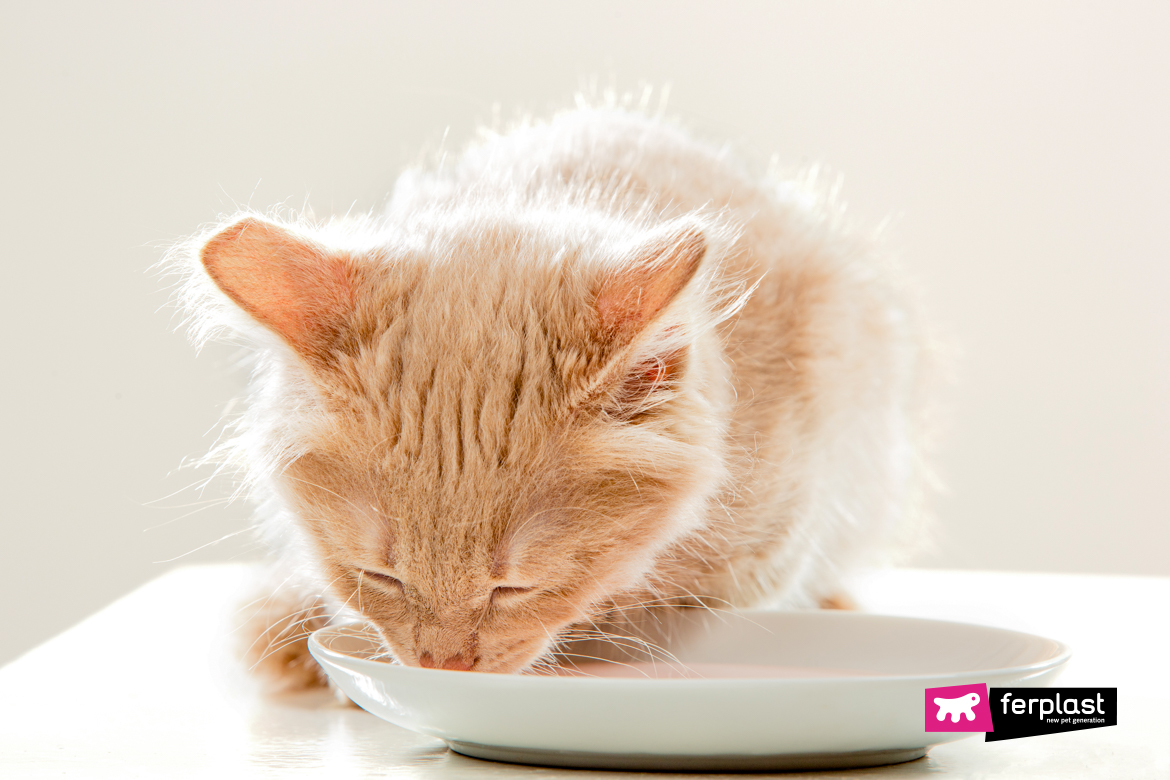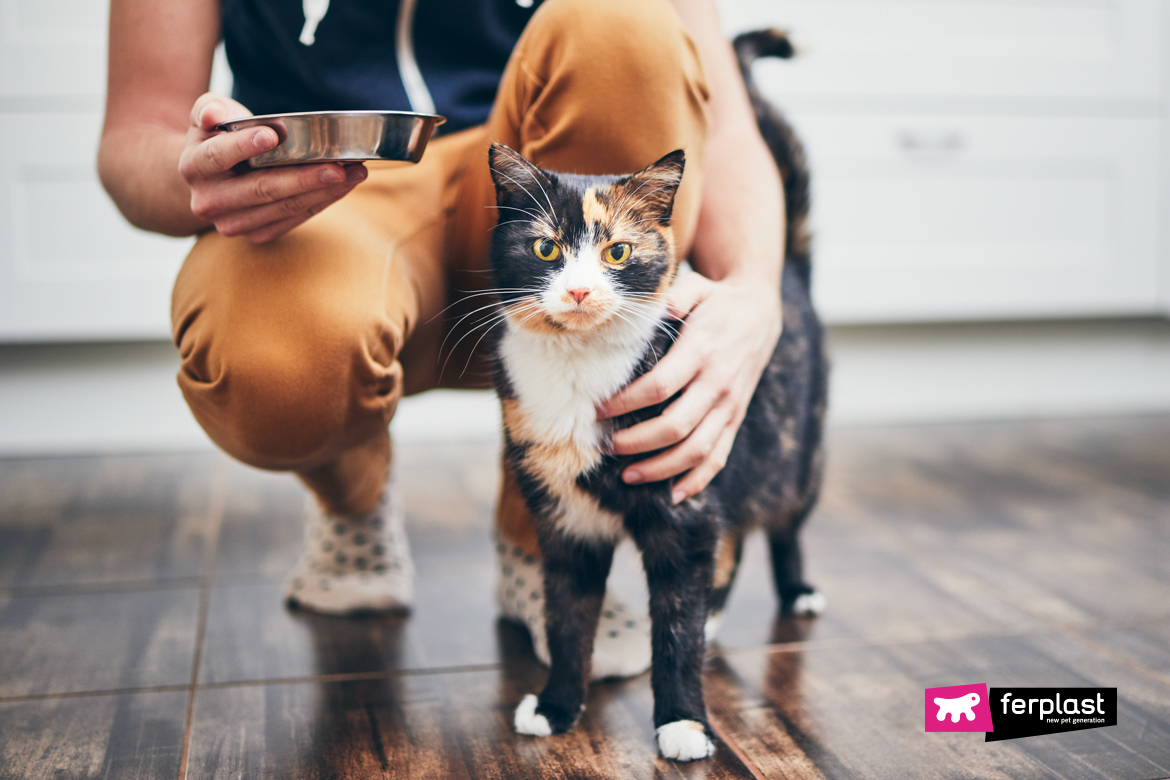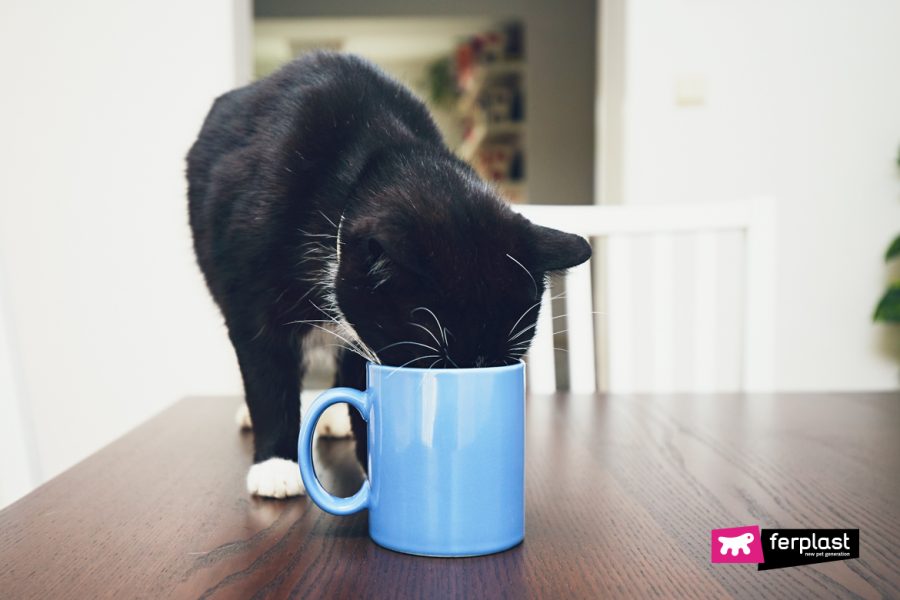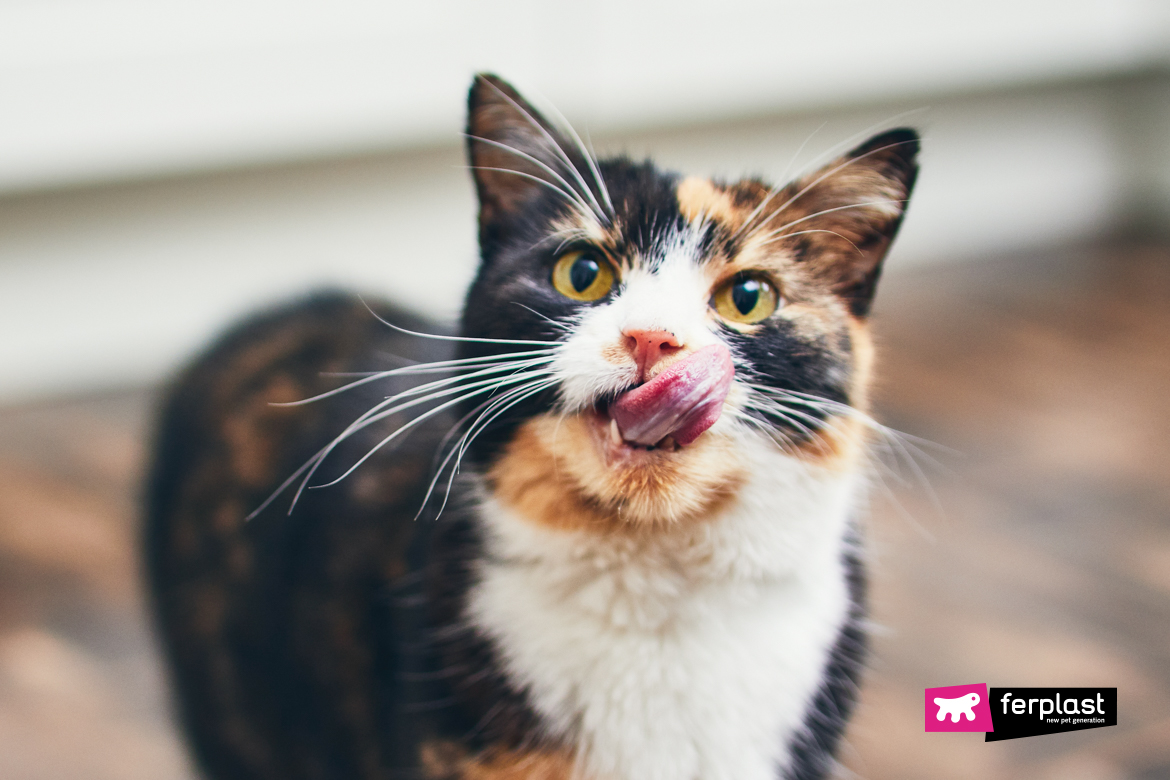In the collective imagination cats love milk. We consider milk a thirst-quenching and nutritious drink and for this reason we are led to offer it to our kitty too. But can cats drink milk? Let’s discover more about this nutritional issue.
How many times in cartoons that passed on TV or reading children’s books did you come across scenes of cats, big or small, ready to lick their mustaches in front of a bowl of milk? According to popular tradition, in fact, the favorite food of cats (in addition to fish) would be milk. But is it really so?
The digestive system of the cat from childhood to adulthood
The cat’s digestive tract changes over the years, there is a notable difference between that of a puppy and that of an adult!
During lactation, the kitten produces a large amount of lactase, or the enzyme that has the task of digesting the lactose present in milk; when the cat is about a month old and the time of weaning has come, the intake of milk decreases more and therefore also the production of this enzyme decreases, consequently the feline has less ability to dispose of milk, developing sometimes a real intolerance.
 Adult cats and milk
Adult cats and milk
Some adult cats manage to drink milk without suffering unpleasant consequences. This is because not all felines are affected so drastically by the decrease in lactase production, therefore some are able to tolerate milk even when grown up. We would like to clarify that it should be administered in small doses and never as the main food of your diet.
Effects of milk on adult cats
1. INTOLERANCE
Most cats suffer from lactose intolerance, therefore affecting the digestive system. When they drink milk they experience stomach pains, nausea, intestinal cramps and dangerous diarrhea: without the lactase enzymes capable of digesting it, the intestine tends to retain milk, which produces bacteria that irritate the intestinal walls causing gas and all unpleasant consequences that could compromise the health of the animal. For this reason, veterinarians advise not to give milk to cats.
2. ALLERGY
There is another category of cats, namely those allergic to lactose. The allergy affects the immune system, in this case the symptoms are itching, difficulty breathing, coughing, hives and pain accompanied by sudden meowings.
 So just like people do, there are adult cats that can handle this drink, and others that just don’t digest it. It is important to know your cat and observe his reaction after giving him a certain type of food or drink!
So just like people do, there are adult cats that can handle this drink, and others that just don’t digest it. It is important to know your cat and observe his reaction after giving him a certain type of food or drink!



